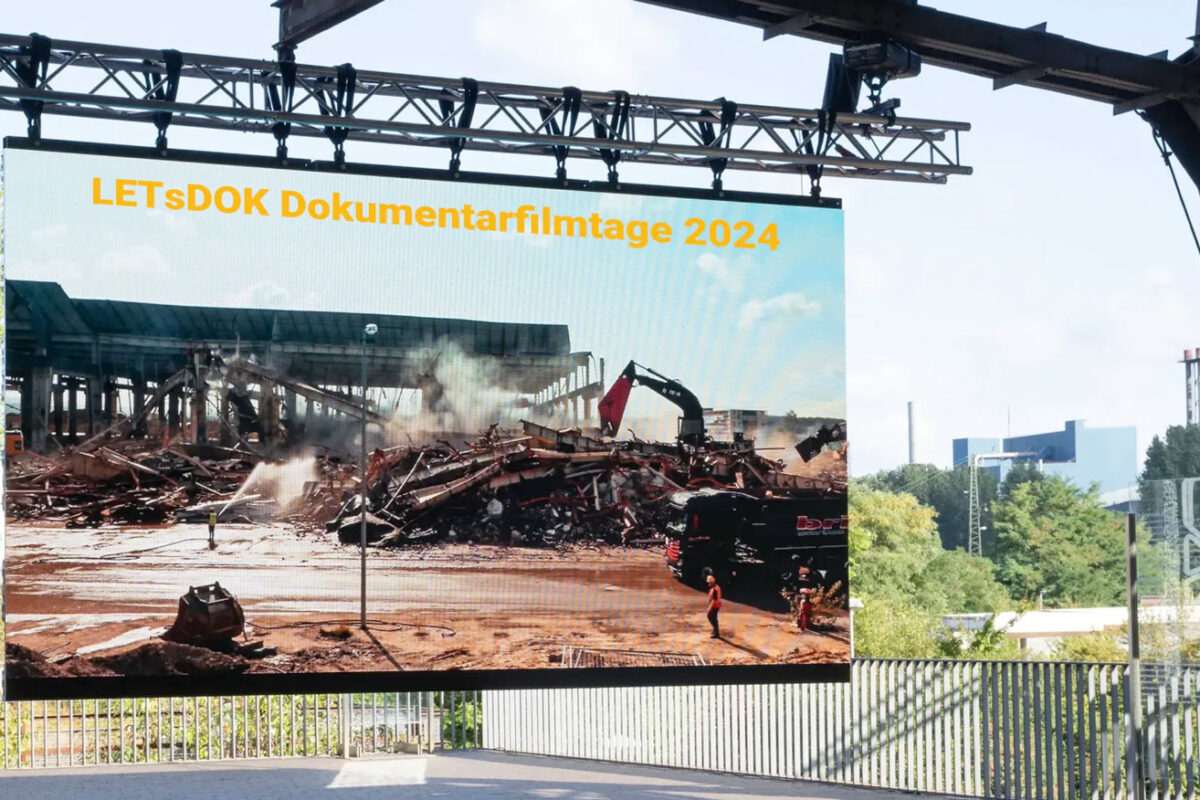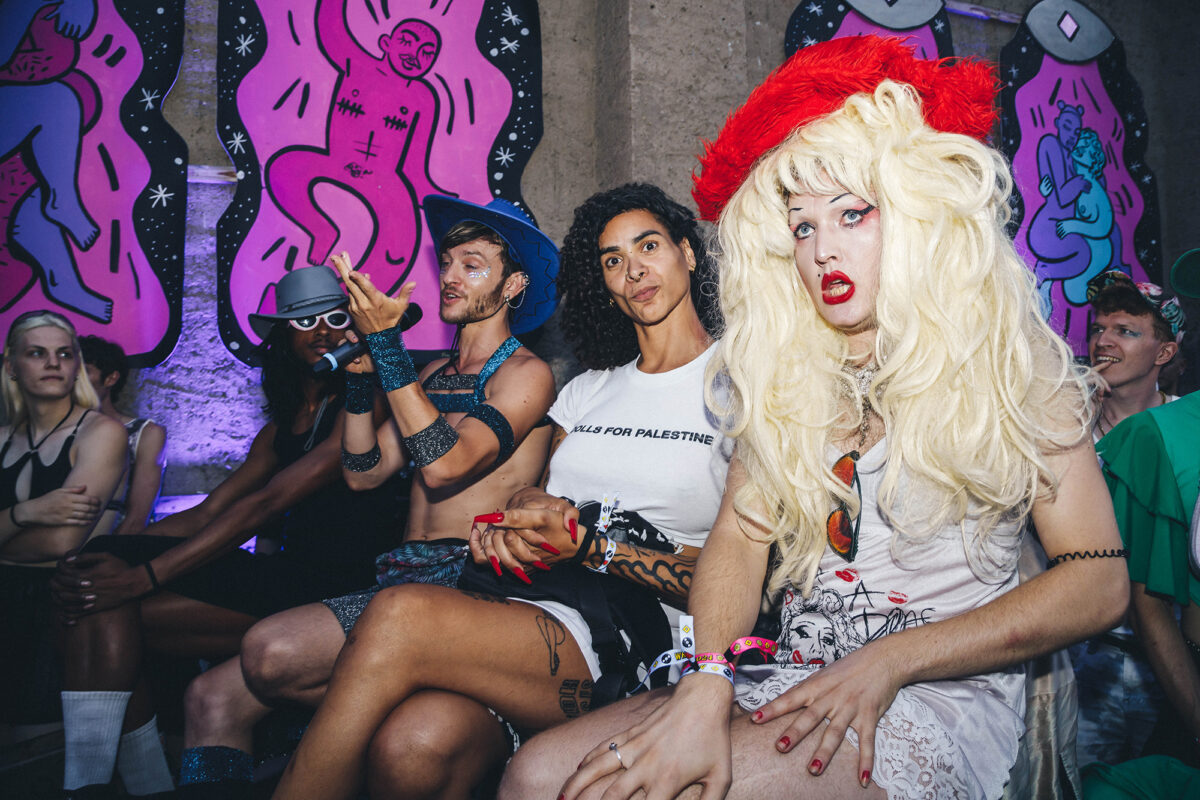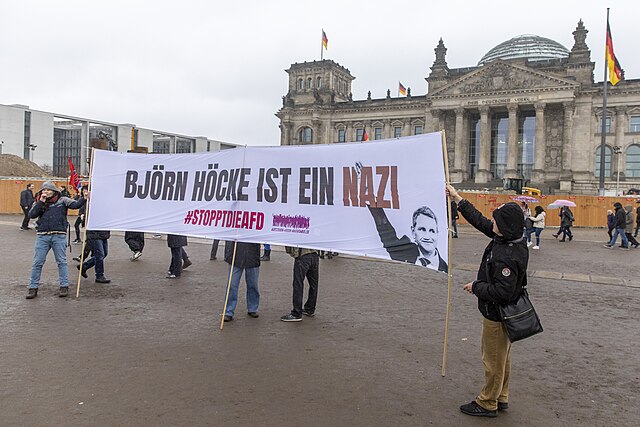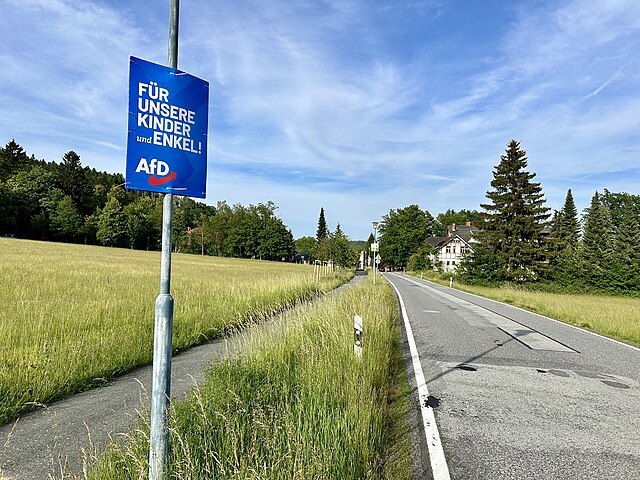It has happened several times that I’ve gotten into a debate with friends about the political significance of clubbing. The most idealistic believe that the political component is intrinsic to it, while the most sceptical see it as a mere form of entertainment. The 2024 edition of Whole Festival – arguably the world’s largest queer electronic music festival, which this year peaked at 9,000 attendees – makes a strong case for the former.
Whole is known to many as “the queer utopia”. Founded in 2017 by a collective of Berlin party organisers, the festival has been held in Ferropolis (Gräfenhainichen, in the state of Brandenburg, only a couple of hours from Berlin) since 2019. The location is an open-air museum that was once the centre of the brown coal industry in central Germany. ‘Utopia’ is used here not as a romantic idealisation, but in the most literal sense of the word: for the four days of the event there existed a political and social micro-structure completely unrelated to the location. In fact, in the small town of Gräfenhainichen, the far-right party ‘Alternative für Deutschland’ scored an astounding 35.6% at the European elections in June 2024, ahead of all other parties. This is a frightening projection in view of the national elections in 2025. Yet that’s exactly where Whole took place, paradoxically where the rights of its participants are most at risk.
The first thing I noticed upon entering the festival area was the amount of keffiyehs and Palestinian symbols worn by the ravers in the most diverse ways. It was a sight that filled my heart with overwhelming joy, reinforcing the stark contrast between the political situation outside its perimeter and inside. Not only did bodies of all colours, origin, gender and form gather to create a parallel universe of inclusion, but they also felt the need to express their support for the Palestinian people in a celebration of multiculturalism and solidarity. A true act of resistance reclaiming common spaces, especially in the German context characterised by a strong anti-Palestinian bias. It was also an act of liberation, in many ways akin to the “Temporary Autonomous Zone” of the anarchist writer Hakim Bey. In his collection of essays from 1991 entitled “TAZ: The Temporary Autonomous Zone, Ontological Anarchy, Poetic Terrorism”, he speaks of temporary spaces that escape formal structures of control, where people can experience autonomy and liberation without interference from constituted authorities such as the state. This is Whole Festival’s added value compared to its peers: to position itself at the intersection of music, queerness, and politics.
This intersection naturally results in dominant social norms having little to no value; Whole’s temporary community challenges them all, from gender to sexual and identity norms. This is precisely its aim: to provide a safe space for authentic self-expression, outside the control and judgement of heteronormative society. A space where the differences of each identity become a reason for unity and mutual enrichment in favour of an inclusive intersectional collectivity in which all voices, especially marginalised ones, are heard and valued. This approach is evident in several aspects of the festival, starting with the type of booking. The selection of DJs is not so much based on individual artists as on collectives from different parts of the world (this year from ten different countries). Each of them represents different identities: there was the Brazilian collective ‘Batekoo’, focused on the QBIPOC community, Berlin’s ‘Body Language’, a series of femme-focused community-building parties, Barcelona’s ‘Maricas’, a FLINTA* queer techno party, São Paulo’s ‘Mamba Negra’, run by women and serving as an activist platform for women, Blacks and the LGBTQIA+ community, Eris Drew & Octo Octa’s US collective and label ‘T4T Luv NRG’, championing the trans community and Kazakhstan’s ‘Zvuk’, which is transforming the Central Asian underground scene.
The inclusive aspect does not neglect accessibility practices, both physical and economic. Whole offered free admission for people accompanying participants with a disability card and set up barrier-free toilets and showers. While the festival publicly acknowledged that not all areas were accessible (some are not wheelchair-accessible, there are no guides for the blind, and accompanying dogs are not allowed due to the high volume of music) it was committed to finding individual solutions. This year saw the introduction of 1,000 community tickets, which are discounted tickets for people on a limited budget. The solidarity programme was also expanded (from 100 to 150), offering a free festival experience to members of the community who are most affected by systemic and economic inequalities, with a special focus on refugees, POC and Black people, trans and gender expansive people, and people with disabilities and those experiencing fatphobia.
Further distancing Whole from an event of pure entertainment is the rich programme of workshops and panel talks. These educational moments create a space for activism that promotes social change and raises awareness through the participation of members of the community. They also serve as a break from the music that never quite stops for four full days. Highlights included “Darkroom Discourse” about public sex and shared sex spaces, facilitated by writer and historian Ben Miller, co-author of “Bad Gays: A Homosexual History” and with Huw Lemmey (Verso, 2022), by João Florêncio, senior lecturer in History of Modern and Contemporary Art and Visual Culture at the University of Exeter and by activist collective DTF. There was also “Decolonising Desire: Navigating Misogynoir And Racial Fetishization In Sex-Positive Spaces” moderated by multidisciplinary artist Ivy Monteiro, part of Trans Safety Emergency Fund, and American-Australian author and artist Jennifer Neal (Notes on Her Colour, 2023, Catapult/Penguin Books Australia) on the participation of people of colour in sex-positivity. Another workshop was on the topic “Fund Healthcare Not Warfare”, facilitated by ACT UP activist, performer, presenter and writer Dan Glass and Palestinian physician Qassem Massri; “Innocent Until Proven Muslim. Understanding Anti-Muslim Hate”, hosted by political scientist and anthropologist Fouad Gehad Marei. Finally there was also the screening of the movies “Resistance & Resilience In The Palestinian Struggle”, “Mourning Ghosts – Queer Grief And Rituals” and “What Our Bodies Reveal: Queer & Trans Bipoc Ravers On Screen”.
The organisers stand in sharp contrast to the current political situation in Germany, characterised by a heavy climate of censorship and cancellation of events not in line with the government’s political stance (an extensive list of which is available thanks to the tireless work of the crowdsourcing platform Archive of Silence). While pro-Palestine initiatives by Whole are not new and date back to at least 2022 with the panel talk “Free Palestine as a Queer Issue”, this year the festival went public with a statement on Instagram acknowledging that “Queer liberation is part of a broader fight against oppression and the struggle for LGBTQ+ rights is inherently linked to broader movements for human rights and liberation, including struggles against racism, domination, and discrimination”. The statement continues: “In Germany, especially, there is an intensely polarising and repressive political climate that hinders and even penalises intersectional efforts to recognise the calamity of the situation. Despite all this, we stand in unwavering solidarity with those affected in their struggle for justice, freedom, self-determination, and equal rights”. This position was by no means a foregone conclusion, especially in the German context where institutions and organisations tend to self-censor and not take a stand, or even distance themselves from the matter in a cowardly and indignant manner by dismissing it as “complicated” for fear of repercussions, including the cutting of state funds. It is not known if or what consequences this stance had for Whole, but one episode in particular is emblematic of the surreal situation in Germany: the ex-comedian turned-fanatic-supporter-of-Israel who became famous for his ironic videos about Berlin life with the motto “It’s so Berlin” (whom I chose not to name), openly attacked Whole with a story on Instagram in which he incited his 243K followers to report the festival by accusing it of “apology of terrorism”, asking them to “call for an investigation into their funding and groups they’re associated with”. These kinds of unfounded accusations are used on a daily basis in Germany to silence anyone who expresses criticism of Israel’s policies and Germany’s complicity in them.
It is worth focusing on another unique element of Whole, namely its location. Situated in the midst of nature, it makes the festival an event intrinsically linked to its landscape. This deep connection with the natural environment has become one of the festival’s defining elements, making it an occasion not only to celebrate queer identity and community, but also to claim a form of liberation from urban spaces. Far from the concrete and asphalt of cities, Whole offers a context in which connection with nature becomes central. This environment allows participants to experience freedom and discovery, where direct contact with the earth, air, and water fosters a feeling of reconnection with self and others. The festival thus becomes a space where urban conventions are subverted, paving the way for new forms of expression and socialisation. Hence the importance given to FKK (Freikörperkultur) culture, or nudism, which is a fundamental component for many participants. Nudity is not only a physical practice, but takes on a political and social significance within the queer community. In this context, nudism becomes an instrument of rejection of traditional canons and norms imposed by urban society, promoting an idea of a free body, free of labels and open to authentic self-expression.
There would still be much to say about the course of the festival, from the music to the live performances, via the interruption caused by an alleged bomb alert within the premises of the festival and the doomsday-scenario storm, but it might be more interesting to detach for a moment from what went on to focus on what Whole has left us. One week after the festival, I found myself on a beach in Apulia (Italy) with my boyfriend. Quite by chance there was a group of guys next to us who had also been at Whole – it was the main topic of their conversation: their adventures, their encounters, their memories. Although now a whole month has passed, there’s still a lot to process in its aftermath. With certainty, the sense of gratitude for having witnessed the experiment of an international, interconnected queer community with anarchic traits, coming together to celebrate its existence and diversity, has transformed into a sense of belonging to something greater. And just as surely, Whole shows us that another model of society is not only possible, but urgently needed: one of inclusion, solidarity, acceptance and harmony with nature.
What remains with many, if not all, is a very specific kind of memories: those that seem simultaneously recent and distant. These memories have an almost surreal quality: time seems to expand or contract in a strange way. The idea of nostalgia might, in this context, be particularly apt to describe them: the past is remembered fondly, burdened by a sense of loss or distance. On the bright side, this melancholy will only last for one year. Until the next edition.




